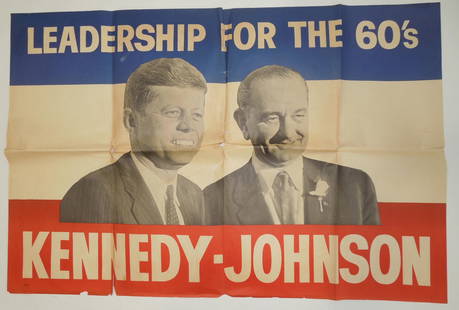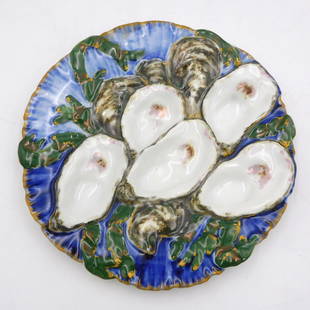
MILITARIA
Similar Sale History
View More Items in Historical Memorabilia
Related Historical Memorabilia
More Items in Historical Memorabilia
View MoreRecommended Collectibles
View More


Item Details
Description
Henry Singleton Pennel VC Derbyshire & Sherwood Foresters (1874 - 1907) - An 1878 Pattern Home Service Officer’s Blue Cloth Helmet, of dark blue Melton cloth, with brass trimmed peak, spike and quadrant, bearing a gilt eight pointed star plate, the topmost point displaced with Queen’s crown, mounted with gilt laurel wreath, within this the silver ‘stag’ device of the regiment, on blue enamel ground, standard pattern rose side ornaments, with leather-backed chin chain, the inner with buff leather sweatband, lining and maker’s mark ‘Hawkes & Co. of Piccadilly London’, complete with its original japanned tin carrying box, bearing plaque inscribed ‘H S Pennell Foresters’. ‘During the attack on the Dargai Heights, Tirah, British India, when a captain of The Derbyshire Regiment was struck down, Lieutenant Pennell ran to his assistance and made two attempts, under a hail of bullets, to carry and drag him back to cover. The lieutenant only gave up when he found that the wounded officer was dead’. Henry Singleton Pennell was born on the 18th June 1874 at 8 Barton Villas, Dawlish, Devon, into a well known local land owning family, Henry’s father being described on his birth certificate as a Gentleman, Henry was the second son of Edwin Pennell and Henrietta (nee Copeland) of Dawlish, his elder brother being Charles Lewin, sisters Rebecca and Hilda-Mary, as was the custom at the time the eldest son went into the family business, the second son followed a career in the Army. After being educated locally in Dawlish, Henry, at the age of 13 in 1887, was sent to finish his education at Eastbourne College (Blackwater House), East Sussex. He remained with the college until 1892, after which he was accepted by the Royal Military College, Sandhurst, for officer training, being placed 26th in the list of 102 successful candidates. After passing out from Sandhurst Henry Pennell was commissioned into the 2nd Battalion, The Derbyshire Regiment (The Sherwood Foresters) as a 2nd Lieutenant on 21st October 1893 and so began his military career. Henry Pennell’s career was tragically terminated in 1907 when he was accidentally killed whilst traversing the famous Cresta toboggan run at St Moritz, Switzerland, when on holiday with fellow officers of his regiment. The official submission made by Brigadier-General Hart, V.C., R.E., to the Assistant Adjutant-General, 1st Division, Tirah Expeditionary Force, on 7 December 1897: ‘Sir, I have the honour to request you will forward, for the favourable consideration of the General Officer Commanding Tirah Expeditionary Force, the attached documents which I have collected regarding the gallant conduct of the following soldiers at the storming of Dargai on 20 October 1897: Captain W. E. G. Smith , 2nd Battalion, Derbyshire Regiment (killed). Lieutenant H. S. Pennell, 2nd Battalion, Derbyshire Regiment. No. 579 Colour-Sergeant J. Keeling, 2nd Battalion, Derbyshire Regiment (severely wounded). No. 4755 Private George John Dunn, 2nd Battalion, Derbyshire Regiment (killed). No. 2732 Private Richard Ponberth, 2nd Battalion, Derbyshire Regiment (mortally wounded). No. 1701 Private J. Anthony, 2nd Battalion, Derbyshire Regiment (severly wounded). No. 3392 Private J. Spick, 2nd Battalion, Derbyshire Regiment (severely wounded). On the 20 October 1897, Captain W. E. G. Smith’s company of the 2nd Battalion, Derbyshire Regiment, was ordered to attack the heights at Dargai. The 1st Battalion, 2nd Gurkha Rifles and 1st Battalion, Dorsetshire Regiment had already been unsuccessful in their attack, and were under cover blocking the way to the hundred yards of open space that had to be crossed. Captain Smith ordered his company to charge, and started forward before his men could get through the companies in front of them. Lieutenant Pennell, Colour-Sergeant Keeling, Privates Spick, Dunn and Ponberth, forced their way through the men in front, and followed the gallant leading of their Captain who fell dead after he had gone about sixty yards. Immediately afterwards, Private Dunn was killed, Private Ponberth mortally wounded, Colour-Sergeant Keeling and Private Spick severely wounded, and Private Anthony was lying close by severely wounded. There were officers, not engaged, who witnessed what happened, and describe the enemy’s fire as extremely heavy, but Lieutenant Pennell ran to the assistance of Captain Smith, and made two distinct attempts to carry and drag him back to cover, and only left his comrade when he found that he was apparently dead. Lieutenant Pennell then ran back to his company which was under cover. Taking all the circumstances into consideration, I consider it my duty to bring forward the conspicuous gallantry of Lieutenant H. S. Pennell, and of Private J. Spick, both of the 2nd Battalion, Derbyshire Regiment, as deserving of being recommended for the Victoria Cross; and, had he lived, Captain Smith’s gallant leading should not have passed unrewarded. It is also apparent that Colour-Sergeant J. Keeling, Privates Dunn, Ponberth and Anthony, are the names of very brave men deserving of the most honourable mention. I would therefore recommend the two survivors, Colour-Sergeant J. Keeling and Private J. Anthony, for the Medal for Distinguished Conduct in the Field, in recognition of the gallant support they gave their officers in following them out of cover and across a heap of dead and wounded men into a perfect hail of bullets. It may be that Privates Booth, Hunt and Wilson of the 2nd Battalion, Derbyshire Regiment are deserving of special mention, but I am unable to obtain sufficient evidence to justify me in recommending them for the Medal for Distinguished Conduct in the Field. I have the honour to be, Sir, Your most obedient servant.’. Henry Singleton Pennell VC did not, like many war heroes die on the battlefield. Instead, he died while on holiday in Switzerland with brother officers. Many Devon newspapers had something to say about him at the time - his deeds were very well-known throughout the county - we have selected his local newspaper - the Dawlish Gazette to tell the outline of the story of his life. This is followed by an account of his untimely death from a New Zealand newspaper. His obvious courage shines through in both accounts. From the Dawlish Gazette. 26 January 1907. A Reuter’s telegram, from St Moritzdorf, Switzerland, dated Sunday last, said Captain Henry Singleton Pennell VC, Staff captain of the Administrative Staff on the Southern Command, died here last night as a result of injuries sustained in an accident on the Cresta Toboggan Run. Captain Pennell was the second son of Mr Edwin Pennell formerly of Dawlish and presently residing in Exeter. The family of Pennells are held in much respect in this town and Dawlishians heard with extreme regret of the sad occurrence which cut short the career of this brilliant young officer. Born in Dawlish in June, 1874, the deceased was educated at Eastbourne College and joined the Sherwood Foresters (Notts and Derbyshire Regiment) in 1893. He served with the 2nd Battalion of his regiment in the Tirah Expeditionary Force of 1897 under Sir William Lockhart. He was present at the storming of the Dargai Heights (He was mentioned in Despatches at the capture of the Sampsgha and Arhanga Passes) and in the operation in the Khaki Mastura ,Waran and Bazar Valleys. The act for which he was awarded the Victoria Cross (he also held the India medal with two clasps), took place in the attack on the Dargai Heights. Captain W. E. C. Smith of the Sherwood Forester was struck down, whereupon, Lieutenant Pennell ran to his assistance and made two distinct attempts, under what was described as “a perfect hail of bullets†to carry and drag him back to cover, and only desisted when he found Captain Smith was dead. The late Captain Pennell also served in the South African War with the West Yorkshire regiment and took part in several engagements including the Relief of Ladysmith, the action at Colenso, the operations at Spion Kop, the actions at Vaal Krantz and Pieter’s Hill (at the latter of which he was wounded). Lang’s Nek and in the Transvaal and east and west of Pretoria, being twice mentioned in Despatches and awarded the Queen’s South African Medal with five clasps. The news was received with profound regret in Salisbury. The distinguished captain who held the appointment of staff-captain at the headquarters of Administration, Southern Command, was held in great respect by all ranks, and was a welcome guest at social functions in the city and country. He distinguished himself at the Staff College which he passed through in 1903. A message of sympathy was sent to his parents on Monday from his brother Staff officers at Salisbury. The funeral of the deceased was held in Dawlish yesterday, the sympathy of the towns people being markedly shown. The town flag was hoisted half mast high, the blinds of business establishments and private houses were drawn and many of the head men of the place, including the Chairman of the Council, Mr J. Shapter, walked in the procession. The body was conveyed from St. Moritz, Canton de Grisons, to this country, under the guidance of the British Consul, via Calais and Dover. The cortege proceeded from the railway station, the coffin covered with a Union Jack upon which were floral tributes being borne by a detachment of the Royal Field Artillery from Topsham Barracks, under Sergeant Skinner. Mourners were Mr and Mrs Edwin Pennell, Exeter, father and mother; Misses R and H Pennell, sisters, Mr C. L Pennell, brother, Mr Lovell Pennell, uncle, Miss Pennell of Dawlish, aunt; Colonel Pennell, cousin and Miss Pennell, Mr Hill, cousin and Mrs Landon. Among those who attended were Colonel H. Sinclair, Assistant Quarter Master General, representing the Staff of the Southern Command to which the late Captain Pennell was attached; Colonel Currie CB, Exeter, retired; Major G. W.B. Collis and Mr Lewis, officer in charge of the coastguard station. The officiating clergy were the Reverend W. P. Alford, vicar and Reverend H. B. W. Hammond, senior curate. The brass plate on the coffin bore the inscription “Henry Singleton Pennell VC; captain, Shewood Foresters, died 19th January 1907 aged 32 yearsâ€. Among a number of beautiful floral tributes , in addition to those sent by the family, was one with a with a card attached on which was inscribed “With deepest sympathy and regret†and adorned with a long and wide sash of violet ribbons; there was a large cross from friends of the Kulm Hotel, St. Moritz. From the same hotel, as a mark of sympathy “from some brother officers†was sent a very choice wreath. There were also wreaths from the manager of the hotel and others at St. Moritz, and from The Reverend W. P. Alford. Messrs Tapper & Sons superintended the funeral arrangements.
Buyer's Premium
- 24% up to £150,000.00
- 12% above £150,000.00
MILITARIA
Estimate £1,200 - £1,500
3 bidders are watching this item.
Shipping & Pickup Options
Item located in London, ukSee Policy for Shipping
Payment

TOP














































































![[Ambrotype] Texas Confederate Soldier: Sixth plate ambrotype. Full leatherette case. Portrait of a possible Texas Confederate soldier. A silver star device was used to pin up the brim of his light-toned headgear, a look often seen in image](https://p1.liveauctioneers.com/7226/322253/173251509_1_x.jpg?height=310&quality=70&version=1710004847)


![George Washington Signed Discharge: Partly printed discharge document signed by George Washington, as Commander in Chief of the Armies of the United States. Newburgh, [New York], 4 January 1783. 1 page, ## x ## in. Undersigned by Washin](https://p1.liveauctioneers.com/7226/322253/173251475_1_x.jpg?height=310&quality=70&version=1710004847)


